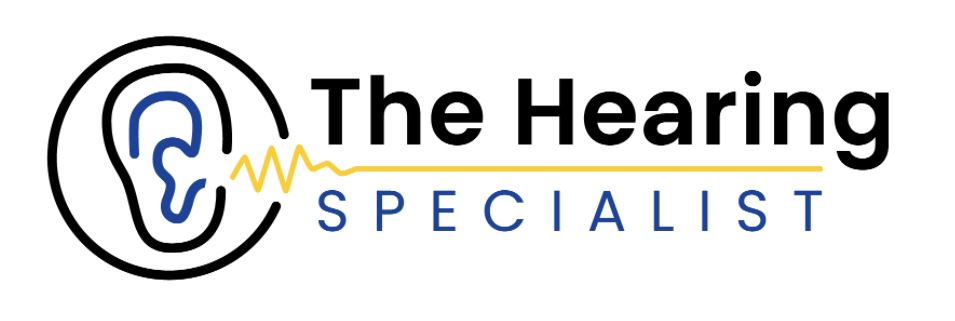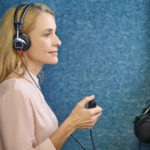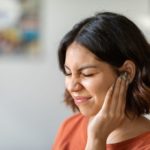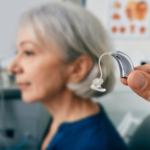If you, your child, or your loved one is having problems hearing, the problem may be neurological, not aural. Here’s what you need to know about APD or auditory processing disorder.
When discussing different types of hearing loss, there is one condition that is frequently overlooked. While many sites list three forms, there are actually four types of hearing loss: conductive, sensorineural, mixed, and auditory processing disorder.
Many overlook auditory processing disorder when discussing hearing loss, since it does not affect the ears or the auditory nerve, but the brain itself. However, APD still manifests as hearing loss, and many of those with APD are considered hard-of-hearing.
Without proper testing, it can be difficult to differentiate between APD and other types of hearing loss. In this article, we’ll be discussing what sets them apart, and how to recognize the symptoms and seek treatment.

What is auditory processing disorder hearing loss?
In short, auditory processing disorder is a form of hearing loss, but not a traditional kind. If no other form of hearing loss is present, the ears are fully capable of receiving sound, but the brain has problems processing and understanding it.
In many cases, hearing loss and auditory processing disorder go hand in hand. While not everyone suffering from auditory processing disorder has sensorineural, auditory nerve, or conductive hearing loss, many do. It is common for the brain to struggle with understanding speech and other noises when it has grown unaccustomed to hearing it.
For this reason, a hearing test and examination is standard procedure for diagnosing APD. A speech-language pathologist and audiologist usually work together to diagnose APD and recognize or rule out any underlying hearing loss.
Symptoms of APD hearing loss
Recognizing hearing loss usually involves noticing problems with someone’s hearing or understanding of sound. This includes:
- Difficulty understanding speech
- Asking people to repeat themselves often
- Problems following conversation
- Unable to hold a conversation in crowded places (cocktail party effect)
- Issues listening to or enjoying music
- Exhaustion or fatigue at the end of the day
The symptoms of APD are similar to hearing loss, but there are some symptoms that are more common in those with APD. These include:
- Difficulty remembering spoken instructions or information
- Mishearing words or sentences (“sit over there” becomes “fit on the chair”)
- Sensory overload (becoming overwhelmed or anxious when in noisy environments)
- Problems grasping nuances of speech (i.e. tone)
APD is often misdiagnosed as ADHD or dyslexia, especially if the person is a child struggling with reading or writing. Auditory processing disorder is most noticeable in children since it can impact their performance in the classroom.
However, this does not mean adults cannot be diagnosed with APD. In fact, many adults with APD go undiagnosed because they brush aside their symptoms, blame themselves for being scatterbrained/unintelligent, or make subconscious efforts to overcome them.
Because of this, it’s important to seek a hearing test and examination if you think you might be suffering from any form of hearing loss, including APD. Once diagnosed, you can begin seeking treatment and improving your life.
Causes and prevention of APD hearing loss
There are quite a few possible causes of APD, though it can be difficult to determine case-by-case causation for every person. Unlike conductive or sensorineural hearing loss, where the cause is usually noise exposure or blockages, auditory processing disorder is neurological. Like many other disorders, it can be difficult to pinpoint a direct cause and solution for APD.
However, we can offer some possible links between certain conditions and APD:
- Other types of hearing loss, like sensorineural or auditory nerve hearing loss. In children born hard of hearing, APD is common after they receive hearing aids.
- Traumatic head injuries may lead to the development of APD• APD can run in families
- Chronic ear infections and meningitis in childhood can cause APD.
- Lead poisoning increases the likelihood of APD.
Birth-related factors, like premature birth or low birth weight. Because APD is often caused by uncontrollable factors, it is difficult to prevent. There are no specific actions you can take to prevent APD from developing in you or your loved ones. Many times, this condition develops without warning, and the cause can be difficult to determine. In children with hereditary likelihood of APD, or a medical history that includes frequent ear infections or meningitis, getting tested for APD sooner rather than later is recommended. The sooner the disorder is diagnosed, the faster they can receive the support that will help them succeed in school. If ignored, APD can cause them to fall behind academically, feel self-conscious, and have problems making friends.
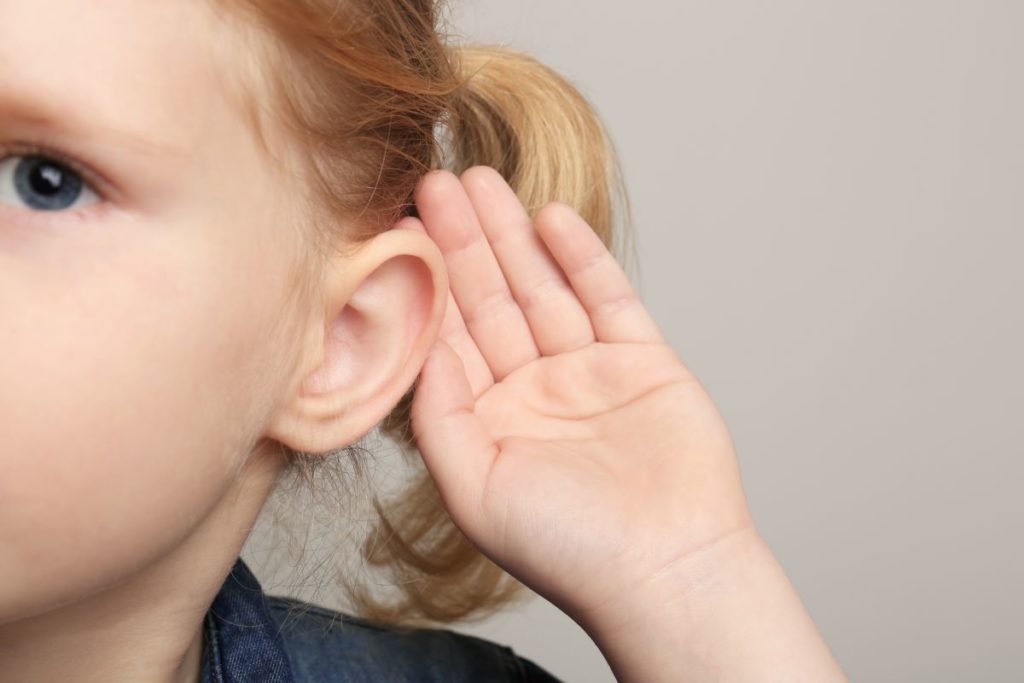
Treatment of APD hearing loss
There is no cure for APD, but treatment plans and accommodations can help children (and adults) overcome APD and navigate the world.
Before APD can be treated, it’s important that a hearing test and examination is administered. If any other form of hearing loss is present, it can require additional treatment. For example, a child with sensorineural hearing loss might require hearing aids before they can be treated for APD.
Once the child has been diagnosed or cleared of underlying problems, a treatment plan can be put together. Not every treatment plan is exactly the same, but many include the following:
- Speech therapy helps children recognize sounds, carry conversations, and learn interpersonal skills that will help them socialize and learn.
- Memory and problem-solving skills can be improved to help children navigate the world and deal with APD.
- FM listening devices can help children focus in the classroom. These filter out background noise, allowing them to hear the teacher’s voice, speak in their “indoor voice”, and avoid sensory overload.
- Accommodations can be made at home and in the classroom. Covering hardwood floors, limited use of TVs and radios, and quiet environments are good for people with APD.
- Understanding is key, regardless of age. Never get exasperated with someone for asking you to repeat yourself, and do not berate them for “not listening”. Always assume someone with APD is doing their best and do your best to make them feel comfortable and confident during conversations.
If you think you, your child, or another loved one is suffering from APD, finding an audiologist in your area is the first step to getting diagnosed. Local audiologists, hearing care professionals (HCPs), and their locations can be found using the Signia Store Locator.
If this article gave you a better understanding of auditory processing disorder, consider checking out our articles on other forms of hearing loss. The Signia newsletter can also be used to stay up-to-date on all of our informational blogs.
